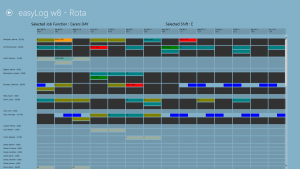
Since 2014 the payment of sleep-in shifts at an hourly rate rather than in a single agreed payment has been an ongoing and unresolved issue despite the ruling of an Employment Appeals Tribunal (EAT) in that year. The tribunal found in favour of at least National Minimum Wage hourly payments by deeming that the care worker was required to be at a place of work at certain hours and was at the disposal of the employer during that period. Furthermore the employee would be subject to disciplinary action if they failed to arrive on time for their shift.
How do you calculate hours when a carer sleeps on shift?
In 2015 it seemed further clarity was provided through guidelines issued by the Department for Business, Energy and Industrial Strategy. These stated that “A worker who is found to be working, even though they are asleep, is entitled to the national minimum or NLW [National Living Wage] for the entire time they are at work.” But this apparent confirmation must be contrasted with National Minimum Wage legislation published in the same year, which said a worker can only be considered to be “available” when “awake for the purposes of working”.
In another tribunal as recently as this May, involving a carer working for the charity Mencap, the EAT decided in favour of hourly payments for an employee on a sleep-in shift caring for two vulnerable adults. However, ambiguity was given a further lifeline by the judge, who declined to provide a general rule but instead emphasised that each case should be determined on its own facts and considered in relation to different workers’ circumstances.
Care software that handles every sleep-in payment option
Sleep-in shifts are most commonly worked by staff in the learning difficulties care sector and, as a supplier of market leading employee scheduling, attendance recording and care management software, easyLog has many clients operating in this area. Irrespective of the cost implications of any definitive future sleep-in shifts ruling, easyLog clients know that they have at their disposal a functionally-rich solution that enables them to pay their staff efficiently and accurately at both single and hourly payment rates even within a single overnight shift.
What’s more the software can embrace pay schemes where carers are paid at different rates for working with more behaviourally-challenged service users and be paid at higher rates for working in more remote locations. All instantly calculated, clearly presented and exportable into a wide range of third party payroll software products such as Sage and Northgate.
Please contact us if you’d like more information on how easyLog’s software can future-proof your business.

